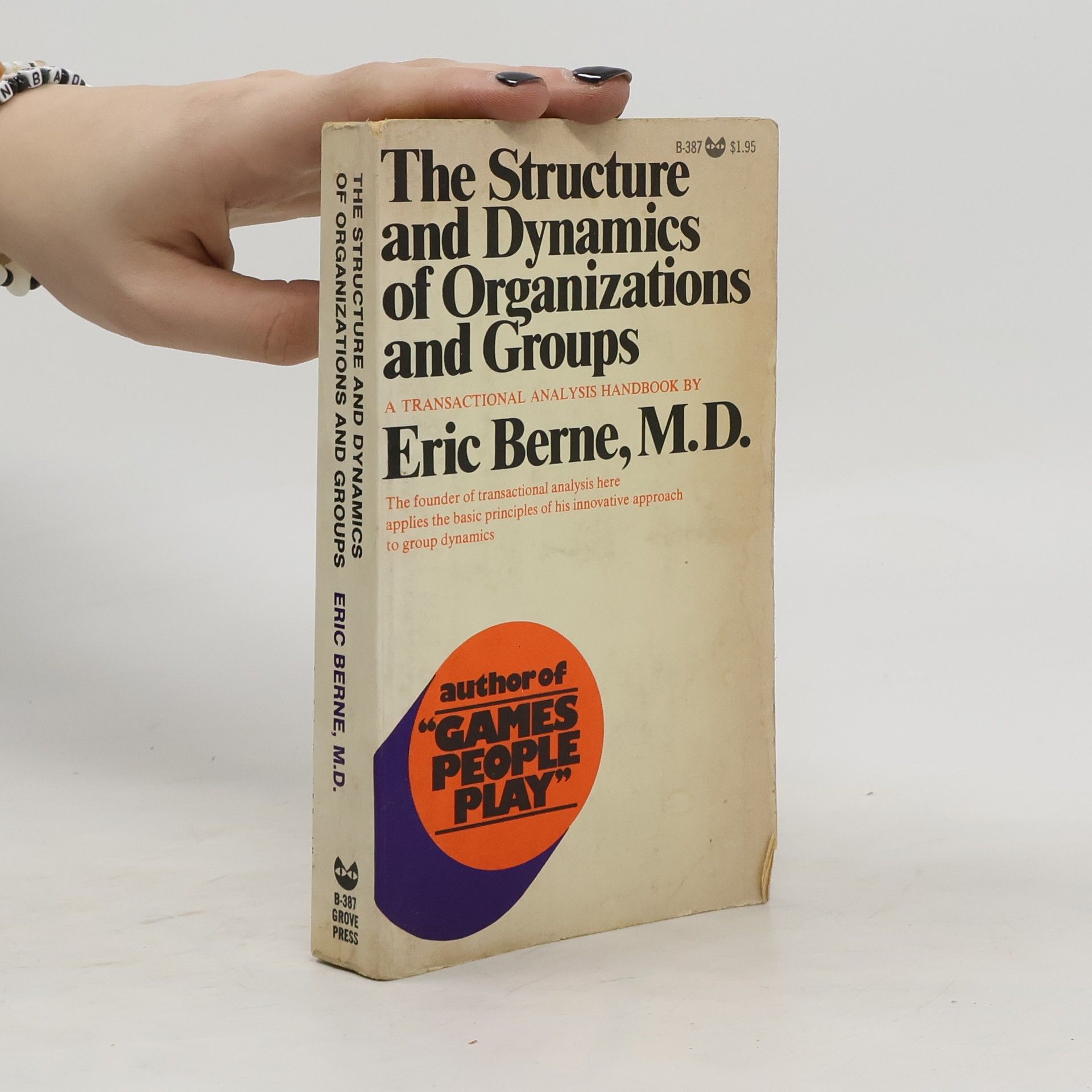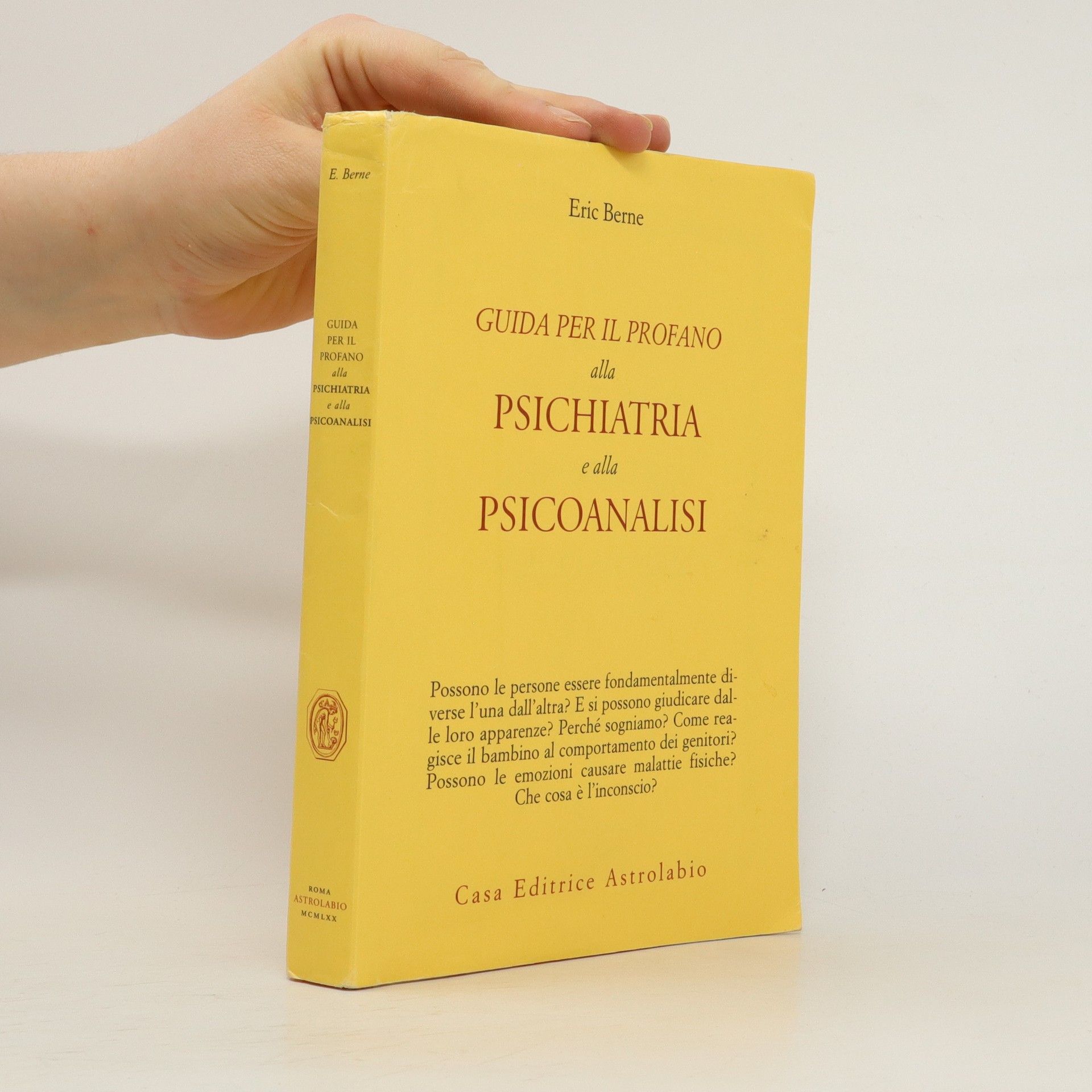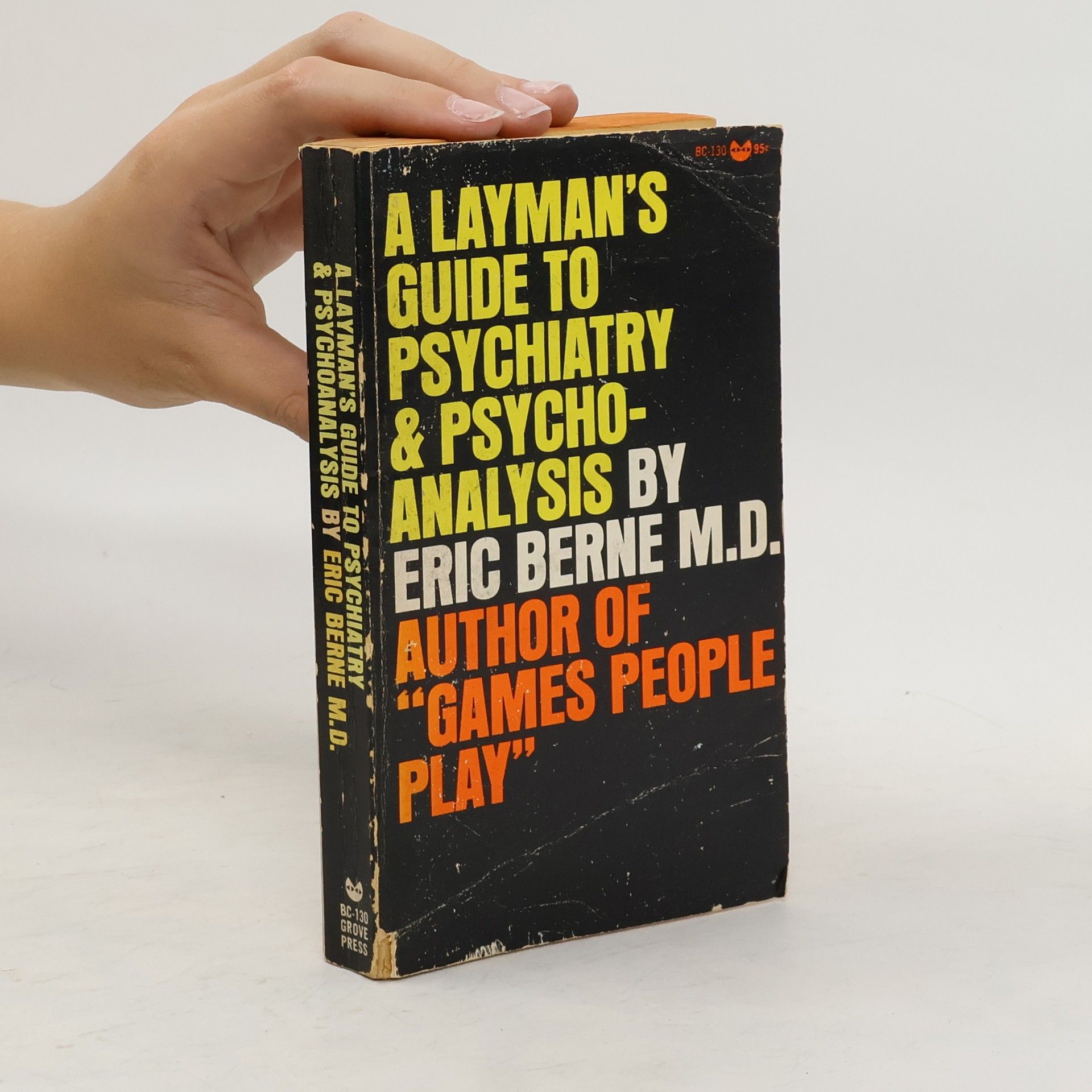Che cos'è l'inconscio? Come possono le emozioni causare malattie fisiche? Come reagisce il bambino al comportamento dei genitori? Chi deve essere psicoanalizzato, e a chi deve rivolgersi? Con la chiarezza e la comprensione che hanno fatto di questo libro un classico nel suo campo, l'autore risponde a queste e a cento altre domande esplorando la dinamica della mente umana in azione.
Eric Berne Libri
Questo autore è conosciuto principalmente come il creatore dell'analisi transazionale, un approccio psicologico che esamina le interazioni sociali come scambi comunicativi. Il suo lavoro approfondisce la comprensione di come gli individui interagiscono e di come questi schemi possano essere analizzati per migliorare le relazioni. Attraverso i suoi metodi innovativi, ha fornito spunti sulla percezione di sé e sulle dinamiche interpersonali.







A che gioco giochiamo
- 192pagine
- 7 ore di lettura
Testo fondamentale della psicologia contemporanea, A che gioco giochiamo ha costruito l'ipotesi e gli strumenti di un nuovo tipo di analisi terapeutica, l'analisi transazionale, utilizzando la rappresentazione della realtà sotto forma di giochi. Dire "gioco" significa esprimere in un altro modo, semplice ed esemplare, in che posizione e in che ruolo una persona intende mettersi (e finisce sempre per mettersi) rispetto a un ambiente o a un altro individuo. Il marito che tormenta la moglie, l'amico che perseguita l'amico, il superiore che si rivale sul dipendente con lo stesso motivo o pretesto, tendono a ricreare circostanze sempre uguali. L'analisi transazionale, come metodo e come teoria, consente a chi la pratica di identificare il proprio ruolo nel gioco che tende a ripetere, e pone così le basi per una autonomia critica da questi meccanismi, e forse per una liberazione.
The Structure and Dynamics of Organizations and Groups
- 338pagine
- 12 ore di lettura
Dr Berne published this book in 1963, after Transactional Analysis in Psychotherapy but before the popular Games People Play. In the preface, he states the book's objective as: "to offer a systematic framework for the therapy of ailing groups & organizations." He discusses the structure & dynamics of groups, classification of groups, the analysis of transactions, an overview of games, group psychotherapy & other subjects. Berne doesn't treat games in great detail--that would come next year in Games People Play. This book is recommended for those interested in an introduction to the application of Transactional Analysis to groups. For a more detailed discussion, readers are recommended to consult Principles of Group Treatment.
"An important book . . . a brilliant, amusing, and clear catalogue of the psychological theatricals that human beings play over and over again." Dr. Eric Berne, as the originator of transactional analysis, has attained recognition for developing one of the most innovative approaches to modern psychotherapy. Discover how many of these "secret games" you play everyday of your life: Iwfy (If it weren't for you); Sweetheart; Threadbare; Harried; Alcoholic, and many more. A groundbreaking book that bores deep into the heart of all our relationships.
Transactional Analysis in Psychotherapy: The Classic Handbook to its Principles
- 272pagine
- 10 ore di lettura
It was only after Dr Eric Berne's Games People Play became in international bestseller in 1964, that transactional analysis, his highly original and innovative approach to psychotherapy, attained wide recognition outside the United States. Over the past forty-five years, however, the principles and practice of 't.a.' have intrigued not only professional therapists but all those who seek to understand human personality and the peculiarities of human relationships.Transactional Analysis in Psychotherapy , the book in which he first laid out the principles of his method, has become a classic in its field and is now available to a new generation of readers.
What do you say after you say hello?
- 475pagine
- 17 ore di lettura
As a psychiatrist, Dr. Berne found that each person, in early childhood--under the powerful influence of his parents--writes his own script that will determine the general course of his life. That script dictates what kind of person he will marry, how many children he will have, even what kind of bed he will die in. Most of all, it determines whether he will be a winner or a loser, a spendthrift or a skinflint, a tower of strength or a doomed alcoholic. Some people, says Berne, have scripts that call for them to fail in their professions, or to be repeatedly disappointed in love, or to be chronic invalids. Here, he demonstrates how each life script gets written, how it works, and how each of us can break free of it to help us attain real autonomy and true fulfillment.
Sex in human loving
- 272pagine
- 10 ore di lettura
Psychology, Relationships, Sexual Studies
Transactional Analysis in Psychotherapy
A Systematic Individual and Social Psychiatry
- 218pagine
- 8 ore di lettura
Introducing a groundbreaking approach to understanding human behavior, this book presents Transactional Analysis as a framework for psychiatrists and analysts. Eric Berne, M.D. explores the motivations behind social interactions, offering insights that reshape therapeutic practices. Through this innovative lens, mental health professionals can better comprehend their clients' dynamics, enhancing the effectiveness of psychotherapy.


